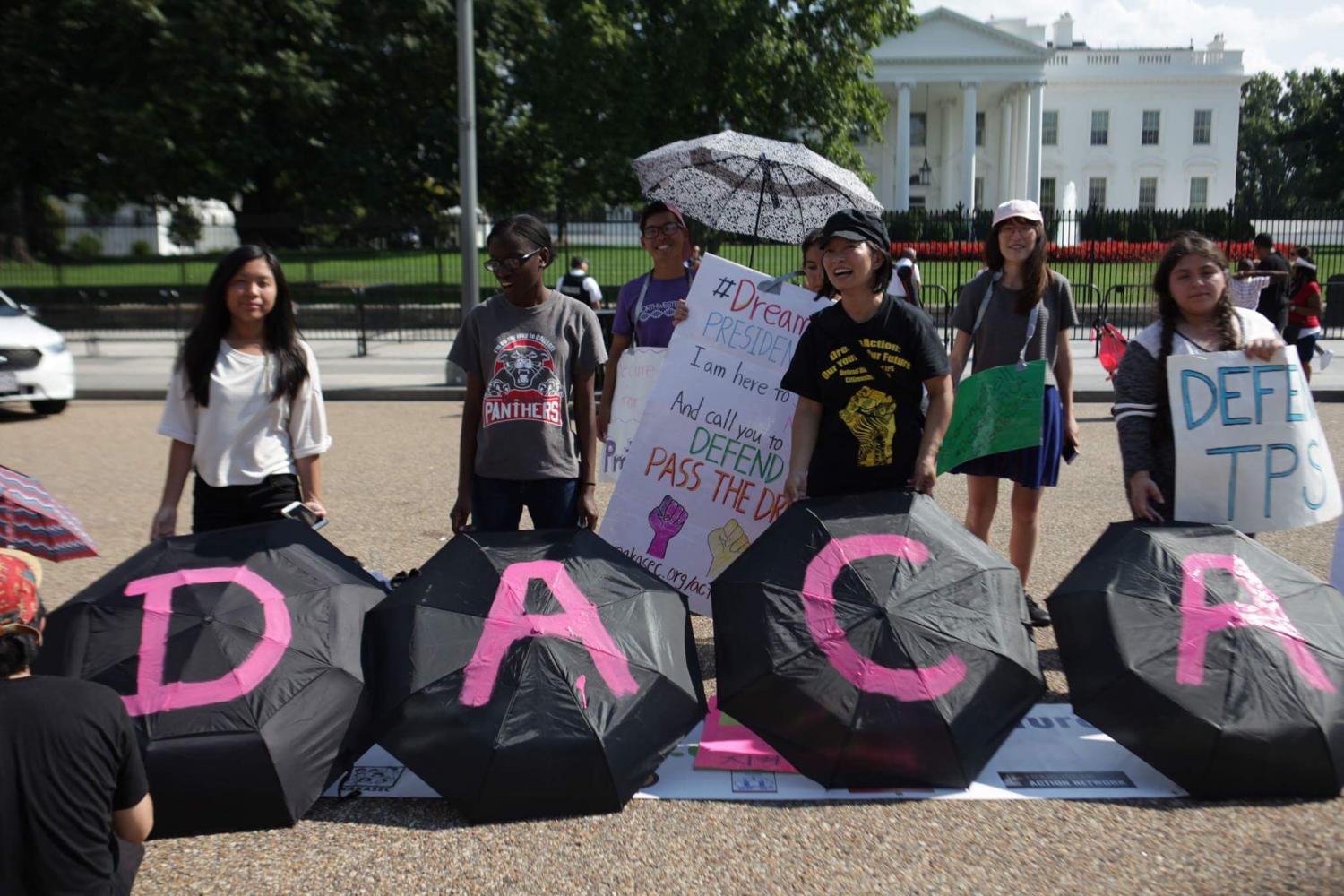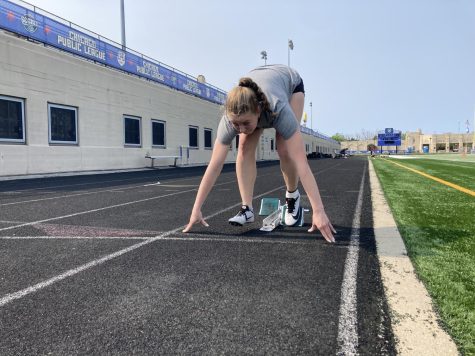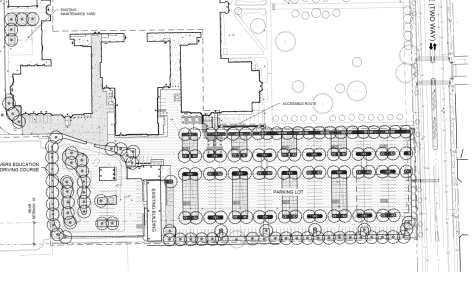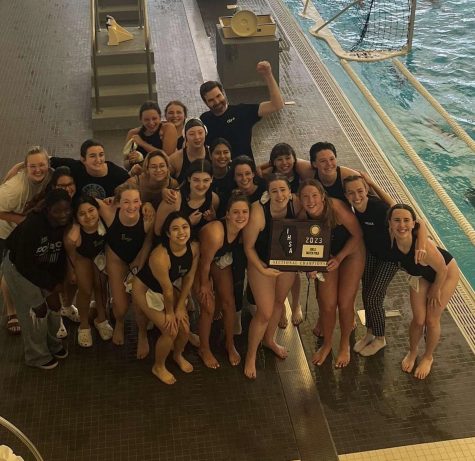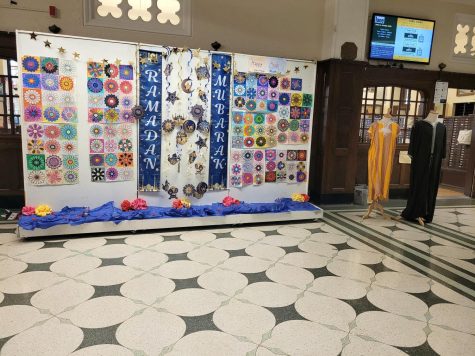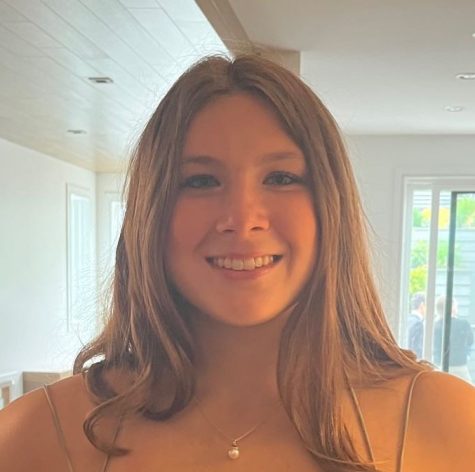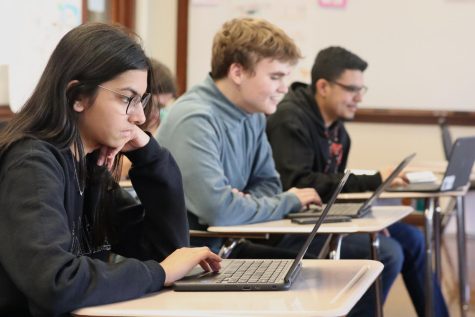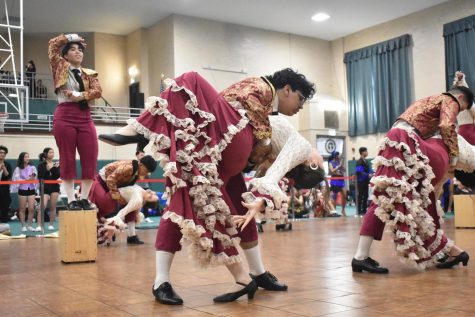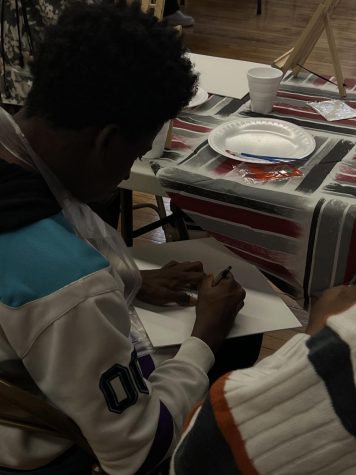Student rallies under the threat of DACA removal
Justin Feller, Div. 874, holds a sign with other members of his youth group on Aug. 16 during a rally to support DACA in Washington, D.C. About 800,000 young undocumented people benefit from the DACA program, which protects them from deportation. (Duke Choi)
September 7, 2017
While rallying in support for Deferred Action for Childhood Arrivals (DACA) with his youth group in the August heat in front of the White House, Justin Feller, Div. 874, met Jay, a beneficiary of DACA who was inspired by their demonstration. It was enough for Jay to come back the next three days to hold up signs in support of their cause.
Jay was one of many people Feller encountered during the rally with his youth group FYSH, Fighting Youth Shouting Out for Humanity, which rallied in light of the threat of DACA being repealed.
DACA is a program implemented in 2012 by the Obama administration which protects young undocumented immigrants from deportation and allows them to obtain a work permit.
Nine state attorney generals, led by Texas attorney general Ken Paxton, said in a letter to the U.S. Department of Justice they would challenge President Trump in court if he does not choose to phase out DACA by Sept. 5.
Feller stood outside the White House eight hours a day for four days. He, along with other members of various organizations, held up signs, drummed and engaged with members of the community.
During the rally, Feller spoke to many people with different opinions on DACA.
Feller said it was important to have an open mind while talking to people because everyone has different experiences and levels of understanding. Even if they did not agree in the end, Feller said he saw the importance in having those discussions in order to get closer to a solution.
“The main goal of bringing youth out there is to show that youth actually care about the things that happen in our country,” Feller said. “I think people are under the impression that a lot of youth aren’t involved politically and don’t have a say about what’s going on, but to see youth talking about an issue and debating, it helps [adults] understand how important this issue is.”
DACA affects nearly 800,000 young undocumented people and has allowed many of them to receive financial aid for college, maintain job security and open bank accounts, according to The New York Times.
Joselin Garcia, Div. 882, applied for DACA in order to get a work permit and to help her apply for college scholarships.
“It’s really important for undocumented students to have the opportunity that U.S. citizens have, to have the chance to go to college, get a good, decent job and apply for scholarships because college is really expensive,” Garcia said.
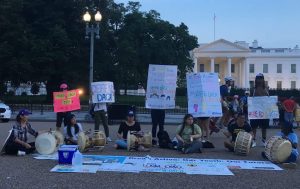
In addition to the personal impact it has on undocumented students, the removal of DACA also has negative implications on the economy.
Illinois would lose about $75 million in wage income if young undocumented people can’t work and also lose about $3.5 million in state income tax, according to a 2016 study by the Chicago Council of Global Affairs.
Sara McElmurry, assistant director of immigration at the Chicago Council of Global Affairs, said that while DACA is able to provide work and relief from fear of being deported, people in the immigration field hope to see a more permanent solution for undocumented students and their parents.
“I absolutely think DACA should be kept in place,” McElmurry said. “The program should be extended until there is a permanent legislative solution in place for these youth to be able to adjust their legal status in the United States.”
The full DACA application process can be lengthy and costly, and it has to be renewed every two years, said Jazmari Palacios, Div. 881.
A potential silver lining to the situation is that there’s more pressure and momentum for Congress to implement a long term solution for these undocumented students, McElmurry said.
Palacios has DACA but said she is worried about what could happen to her family especially under the Trump administration since her parents are also undocumented. However, she recognizes the more awareness that is spread about the rights of undocumented students and that they must continue fighting for these rights.
“Having [Trump] be president, people find it as a way to hide and be scared,” Palacios said. “We should keep spreading good word and protest, try to make a difference.”
There are resources young undocumented people can go to that can provide guidance in the case that programs like DACA do get repealed.
“I do know that community groups, legal service organizations are really doubling down and making strategies to be able to support people in the event that the program does get canceled,” McElmurry said.
During the rally in D.C., Feller said he learned about how both sides were scared about the future of DACA.
“A lot of people are afraid [DACA beneficiaries] are going to take their jobs,” Feller said. “But they have to understand we all have a right to the American dream no matter what color our skin is.”

